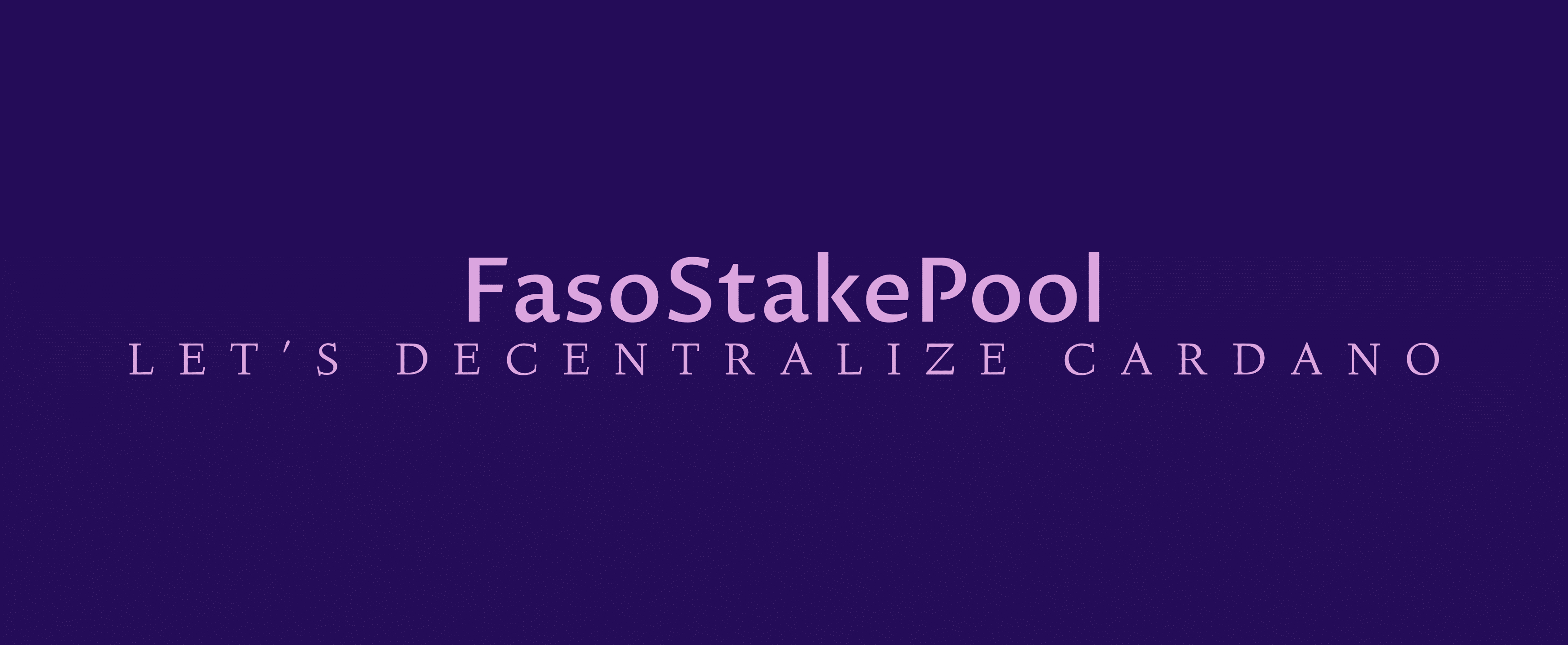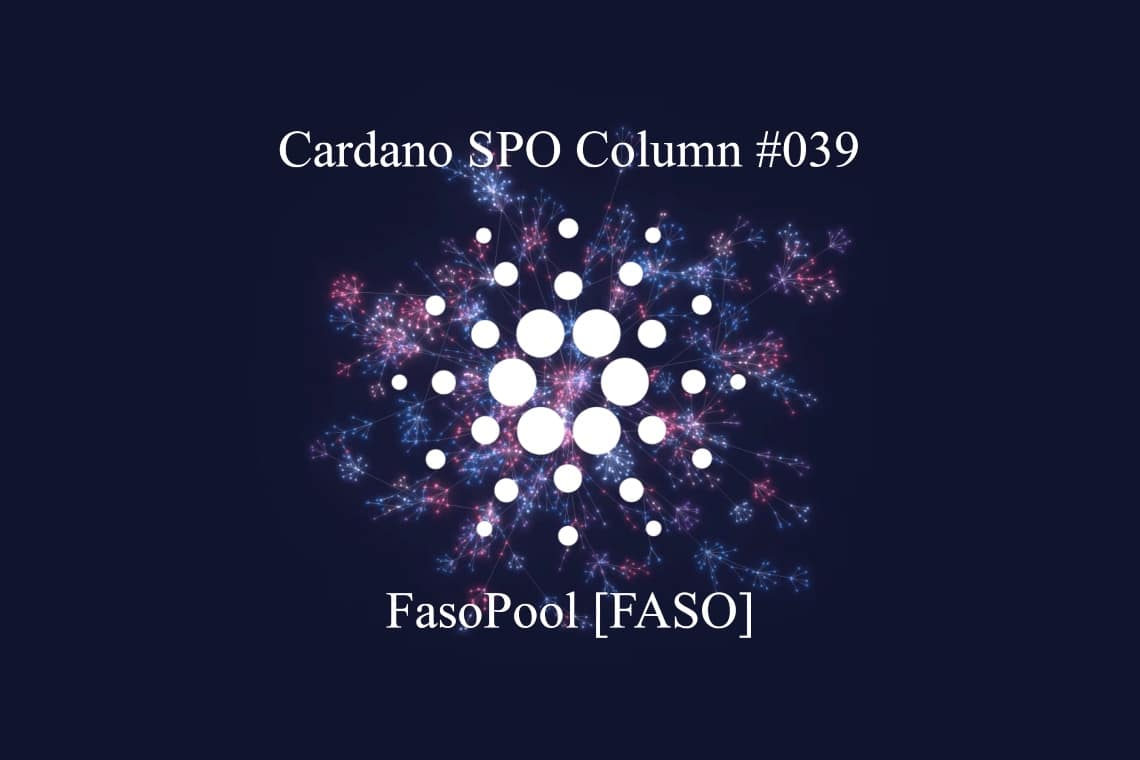This week’s guest on the Cardano SPO Column is a bare-metal, non-profit Cardano stake pool that will donate 20% of its pool rewards to the Barka Foundation: FasoPool [FASO].
Last week’s guest was a stake pool operated by a very active member in the Cardano community.
This initiative is a point of reference for everything Cardano and every week or two we will invite a Stake Pool Operator (SPO) to answer some questions and give us an update directly from within the Cardano community.
Considering that many of our readers are new to the crypto space, we will have a mix of simple and technical questions.
Summary
Cardano SPO, interview with FasoPool [FASO]

Hi, thanks for your time. Please introduce yourself, where are you based and what is your background?
Hi, my name is Kade Koanda and I was born and grew up in Burkina Faso. I moved into the United States after high school.
I have been living in Lincoln, Nebraska (USA) for the last couple years. My background is in IT/programming but now I work as a DevOps Engineer. If I’m not working, you can find me spending time with my family doing silly stuff with my daughter.
How did you find out about Cardano and why did you decide to launch a stake pool?
I discovered Cardano back in February while I was learning how to write smart contracts on Ethereum. I don’t remember how but it was something related to Charles’ famous whiteboard video. After that, I started reading about anything related to Cardano.
I believe in the mission aiming to change the world by focusing on under-developed countries. I wanted to learn more about the ecosystem that is why I have decided to launch the Faso Pool and also applied to the Plutus Pioneer Program, which is a program to recruit and train developers in Plutus for the Cardano ecosystem. When you join this program, you will become part of a group with early access to a set of courses that teach you the core principles of how to code in both Haskell and Plutus.
You’re part of the Cardano Bare Metal Alliance (CBMA), what does that mean? What are the advantages?
Faso Pool is a member of CBMA, which means my pool is running on a physical computer server, not virtual servers running in multiple pieces of shared hardware.
Before launching my pool, I knew that it would be difficult to sustain with a pretty low pledge and live stake and I wanted for Faso Pool to stay for the long run.
Running my pool as bare metal allowed me to pay less for my cloud fees. This was one of the reasons to use a bare metal server for my pool. The other reason is to support decentralization by making more pools using bare metal but not cloud servers.
Today, Faso pool is hybrid: 1 cloud and 2 bare metal. One thing that I know is Faso Pool would not be here if it were not running as a bare metal server because I did not mint a block for the first 4 months.
Something else you’d like to add? Where can people contact you?
I chose Barka Foundation as my charity organisation because I wanted to find a way to give back to people in Burkina Faso. They have been doing a pretty good job supporting the local population, students (boys and girls), building schools, latrines and wells.
I have decided to donate 20% of my fees to Barka Foundation every time the pool mints a block but I will increase it to 30% if the pool starts minting regularly. If you like what Faso Pool is doing, you can support us by delegating to [FASO].
For more information visit my website.
Thank you!
Disclaimer: The opinions and views of the SPOs are their own and do not necessarily reflect those of the Cardano Foundation or IOHK.




